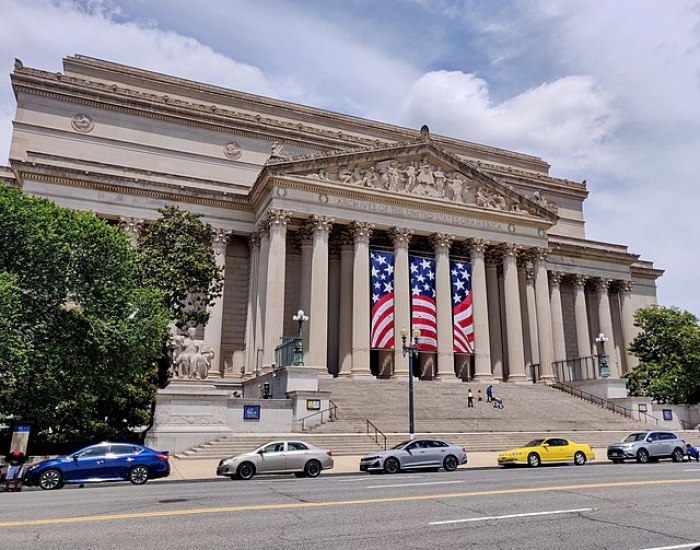National Archives says ‘harmful language' alert covers all documents, not just US Constitution

Following criticism, the U.S. National Archives Records Association has clarified that the “harmful language" alert recently introduced on its website for the U.S. Constitution is a blanket notice that also applies to pages featuring other historical documents in its database.
Conservative radio host Todd Starnes stirred controversy last week when he shared a screenshot of the NARA website, revealing that the U.S. Constitution is now accompanied by a “harmful language" alert. In response, the NARA received immense pushback on social media.
This alert is not connected to any specific records, but appears at the top of the page while you are using the online Catalog (https://t.co/dwGmbXhjFP).
— US National Archives (@USNatArchives) September 7, 2021
To learn more about why the alert about harmful language appears in our Catalog, please go to https://t.co/E3uoAKaF5J
The criticism prompted NARA to issue a response, asserting that “This alert is not connected to any specific records, but appears at the top of the page while you are using the online Catalog.”
“NARA’s records span the history of the United States, and it is our charge to preserve and make available these historical records,” the federal agency explained in a statement. “As a result, some of the materials presented here may reflect outdated, biased, offensive, and possibly violent views and opinions. In addition, some of the materials may relate to violent or graphic events and are preserved for their historical significance.”
NARA's statement added that “some items may … reflect racist, sexist, ableist, misogynistic/misogynoir, and xenophobic opinions and attitudes; be discriminatory towards or exclude diverse views on sexuality, gender, religion, and more; include graphic content of historical events such as violent death, medical procedures, crime, wars/terrorist acts, natural disasters and more; [and] demonstrate bias and exclusion in institutional collecting and digitization policies.”
NARA was established by Congress in 1934 to preserve and protect documentation of American heritage. The agency vowed to “[work] in conjunction with diverse communities, [and] seek to balance the preservation of this history with sensitivity to how these materials are presented to and perceived by users.”
Earlier this year, NARA released a task force report on racism. The report determined that the National Archives Rotunda in Washington, D.C., which houses the founding documents of the U.S., reflects “structural racism” because it “lauds wealthy White men in the nation’s founding while marginalizing BIPOC, women, and other communities.”
The task force also criticized the “structural nature of racism that permeates all aspects of work and workplace culture at NARA.”
The report cited the May 2020 death of African American George Floyd in police custody as the reason why NARA decided to “discuss systems of racial inequality in our customer-facing operations and internally within our workplaces."
The task force also defined “reverse racism” as “a fallacy” and “impossible, as the power structure of the United States has historically benefitted white people and continues to do so today.”
Defining “structural racism” as “the overarching system of racial bias across institutions and society,” the report concluded that the phenomenon “unequivocally impacts how NARA staff interact with records, colleagues, and customers.”
According to Freedom of Information Act records obtained by Fox News, approximately 800 NARA employees attended a town hall meeting of the task force on May 11. At the meeting, a presenter from a museum subgroup told a story about a black congressional staffer who objected to the “charters of freedom” label assigned to the historical documents.
“It happened during a tour of the Rotunda led by the congressional office,” the presenter said. “During this tour, the leader referred to the Declaration of Independence, Constitution and Bill of Rights as the charters of freedom, which many of us often do. It was at this point that one of the tour members, a black congressional staffer, turned to him and said, ‘Those are not my charters of freedom.’”
“I tell this story because it demonstrates the importance of the work of the task force,” the presenter continued. “We never want our exhibits, programs or educational materials to make people feel alienated or excluded.”
Additionally, the subgroup recommended a “reimagining” of the Rotunda, alleging that it fails to “tell the whole story” of slavery.





























